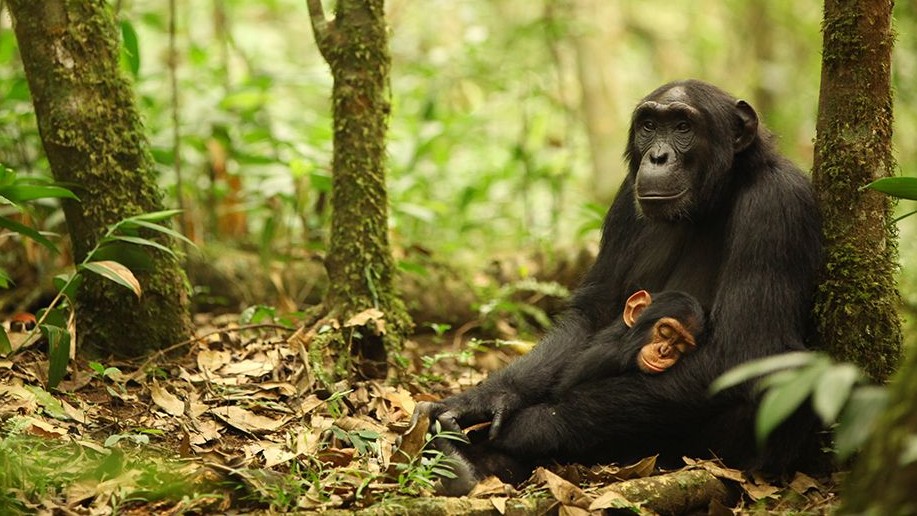A decade-long chimp war ended in a baby boom for the victors, scientists discover
A deadly conflict between rival groups of chimpanzees in Uganda led to comprehensive victory and a bounty of territory and food — does it show why humans go to war?

Get the world’s most fascinating discoveries delivered straight to your inbox.
You are now subscribed
Your newsletter sign-up was successful
Want to add more newsletters?

Delivered Daily
Daily Newsletter
Sign up for the latest discoveries, groundbreaking research and fascinating breakthroughs that impact you and the wider world direct to your inbox.

Once a week
Life's Little Mysteries
Feed your curiosity with an exclusive mystery every week, solved with science and delivered direct to your inbox before it's seen anywhere else.

Once a week
How It Works
Sign up to our free science & technology newsletter for your weekly fix of fascinating articles, quick quizzes, amazing images, and more

Delivered daily
Space.com Newsletter
Breaking space news, the latest updates on rocket launches, skywatching events and more!

Once a month
Watch This Space
Sign up to our monthly entertainment newsletter to keep up with all our coverage of the latest sci-fi and space movies, tv shows, games and books.

Once a week
Night Sky This Week
Discover this week's must-see night sky events, moon phases, and stunning astrophotos. Sign up for our skywatching newsletter and explore the universe with us!
Join the club
Get full access to premium articles, exclusive features and a growing list of member rewards.
Killing neighbours and taking over their lands led to a baby boom for a chimpanzee community in Uganda — potentially showing why it can be advantageous for chimps to start wars.
Chimpanzees (Pan troglodytes) have long been known for violent conflict or "warfare." It was first documented by English primate researcher Jane Goodall, who in 1974 observed the chimpanzee community in Gombe National Park in Tanzania splinter into two warring groups, leading to a four-year battle that resulted in the deaths of all the males in one group. But why the animals persisted with the violence for so long wasn't clear.
To shed light on this, the lead author of a new study Brian Wood, an anthropologist at the University of California, Los Angeles, and his colleagues examined data collected on chimpanzees in Kibale National Park in southwestern Uganda over more than three decades.
Between 1998 and 2008, the Ngogo chimpanzees of Kibale engaged in violent clashes with their neighbors. During this decade of conflict, at least 21 chimpanzees from neighboring groups were killed, and in 2009, the Ngogo chimpanzees expanded into an area previously inhabited by their rivals, boosting their territory by 2.5 square miles (6.4 square kilometres) or 22%.
The records revealed that in the three years before the territorial expansion, the female Ngogo chimps gave birth to 15 offspring. But in the three years after it, they gave birth to 37 youngsters, more than doubling their fertility rate.
What's more, the infants born after the expansion were more likely to survive: they went from having a 41% chance of dying before the age of 3 to just an 8% chance of it. The study was published Nov. 17 in the journal PNAS.
"At the time, it was very obvious to the field workers that the chimpanzees were experiencing a baby boom. We expected to see that in the data, but not the boost to survivorship," Wood told Live Science.
Get the world’s most fascinating discoveries delivered straight to your inbox.
The work provides the best evidence yet that, for chimpanzees, expanding territory after killing off rivals can directly boost reproductive success, he said. The chimpanzees’ territorial expansion gave them access to more food, and the subsequent improvement in nutrition and health probably led to higher female fertility and better survival rates among the young, Wood added.
The boost to survival rates could come down to two factors. The first, Wood said, is an improvement in the health and energy of the mothers, and the other the removal of rival males.
"The survival being higher makes sense because a major source of mortality for chimpanzee babies is getting killed by their neighbours," Michael Wilson, who studies the behavior and biology of chimpanzees at the University of Minnesota and wasn't involved in the study, told Live Science. "What this study supports is the idea that under certain conditions, it is adaptive to defend group resources and kill members of neighbouring groups. The chimpanzees are looking out for their own group, essentially."
Yet, if there is a benefit for the winners, there will be a cost to the losers, Wood said. He thinks it is likely to be a zero-sum game and there would probably be no overall gain in chimpanzee numbers because while the victors benefit, others lose.
The scientists behind the study claim that the findings could help shed light on the evolution of violence in humans. Because there is lethal violence in our closest living relatives — chimpanzees and bonobos (Pan paniscus) — some scientists have previously suggested this trait may have been present in our shared common ancestor, which probably lived six or seven million years ago, Wood said.
Competition over access to land and resources is still an ever-present part of the human condition, he said, but it is generally transformed by the human ability to mediate and avoid conflict.
"Ongoing conflict in the world over resources has echoes of what chimps are up to, but I don't think that's a favourable comparison if you happen to be involved," Wood said.
In general, there's a striking difference between humans and chimpanzees when it comes to intergroup relations, Wilson said. "If a chimpanzee sees a male from a neighbouring group, the only way he can benefit is by imposing some cost on that male, taking his territory or taking his life."
When people see a stranger from another group, there is a chance that they can benefit from interacting with them, he said.
It is this that has allowed humans to create multi-level societies with ties of trade, kinship and ritual forming larger units of social organization.
"In the modern world, the benefits from intergroup interactions have grown so enormous and the costs of war have also multiplied so enormously that it's generally a pretty dumb idea to start a war," Wilson said.

Chris Simms is a freelance journalist who previously worked at New Scientist for more than 10 years, in roles including chief subeditor and assistant news editor. He was also a senior subeditor at Nature and has a degree in zoology from Queen Mary University of London. In recent years, he has written numerous articles for New Scientist and in 2018 was shortlisted for Best Newcomer at the Association of British Science Writers awards.
You must confirm your public display name before commenting
Please logout and then login again, you will then be prompted to enter your display name.
 Live Science Plus
Live Science Plus










